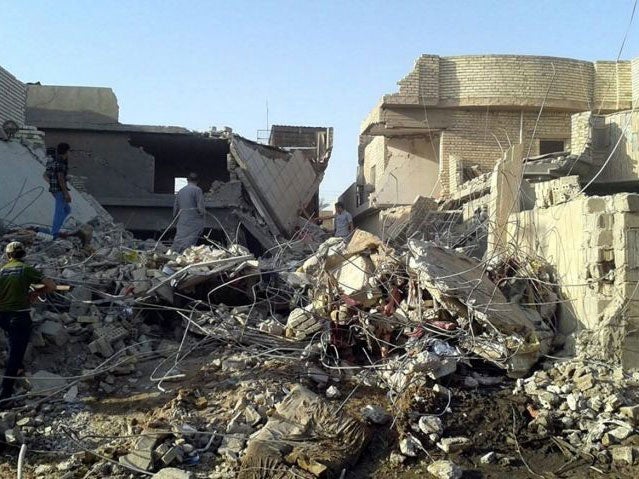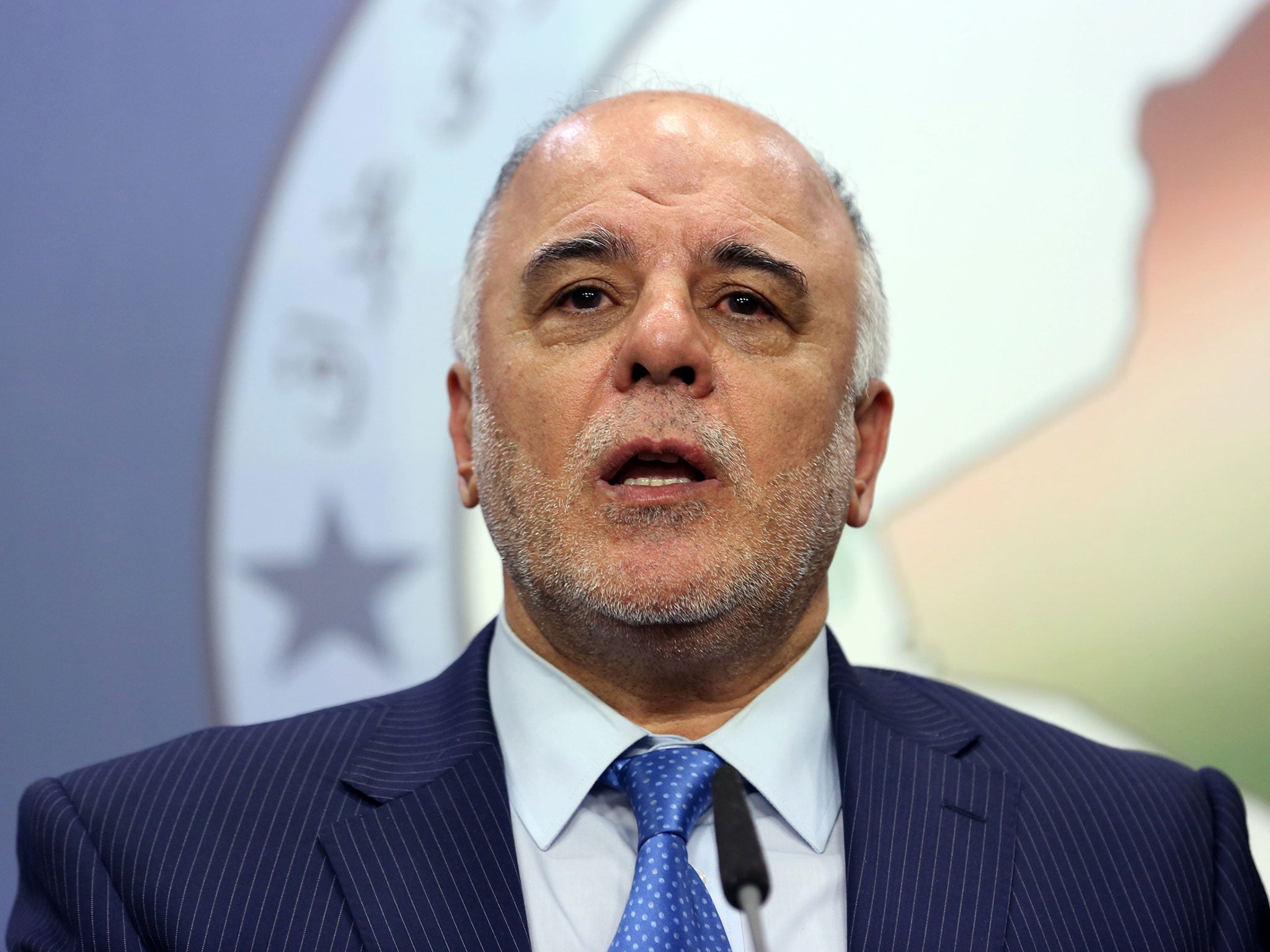Islamic State: Iraqi Government's illegal barrel bombing of civilian areas 'to be stopped'
Scores of people have died in indiscriminate bombing of Isis-controlled areas

Your support helps us to tell the story
From reproductive rights to climate change to Big Tech, The Independent is on the ground when the story is developing. Whether it's investigating the financials of Elon Musk's pro-Trump PAC or producing our latest documentary, 'The A Word', which shines a light on the American women fighting for reproductive rights, we know how important it is to parse out the facts from the messaging.
At such a critical moment in US history, we need reporters on the ground. Your donation allows us to keep sending journalists to speak to both sides of the story.
The Independent is trusted by Americans across the entire political spectrum. And unlike many other quality news outlets, we choose not to lock Americans out of our reporting and analysis with paywalls. We believe quality journalism should be available to everyone, paid for by those who can afford it.
Your support makes all the difference.The Iraqi army has killed scores of civilians by dropping illegal bombs on residential areas in its fight against the Islamic State (Isis).
The new Prime Minister, Haider al-Abadi, ordered a stop to air strikes on civilian populations on Saturday to comply with conditions set by moderate Sunni Muslim tribal leaders supporting the Government’s military campaign.
He claimed the order had come into effect on Thursday but on that day alone, 14 barrel bombs were dropped on Fallujah city, killing 22 civilians according to a worker at the local hospital.
"I have ordered the Iraqi Air Force to halt shelling of civilian areas even in those towns controlled by Isis," Abadi said on his official Twitter account.
Human Rights Watch and other charities had recorded widespread use of barrel bombs by Iraqi forces since the start of the Isis campaign to establish an Islamic caliphate earlier this year.
The terrorist group now controls one third of Iraq, including the cities of Mosul, Ramadi and Fallujah as well as countless towns.

Militants have taken over the civilian administration in areas they control and embedded themselves among the general population, meaning that until now entire cities have been considered legitimate military targets by the Iraqi Government.
In July, Human Rights Watch reported that barrel bombs were raining on civilians in Isis-controlled towns including Fallujah, Beiji, Mosul, Tikrit and al-Sherqat.
The group claimed that 75 civilians had died in Iraqi air strikes in little over a month and 17, including seven women and two children, were killed by barrel bombs.
Calling for the US and international allies to stop providing weapons and support to Iraqi forces until they complied with humanitarian law, it demanded a halt to attacks in civilian areas.
“The Iraqi government may be fighting a vicious insurgency, but that’s no license to kill civilians anywhere they think Isis might be lurking,” said Joe Stork, the deputy Middle East director at Human Rights Watch.
“The government’s air strikes are wreaking an awful toll on ordinary residents.”
Fallujah, where barrel bombing was recorded as recently as Thursday, has been targeted by the illegal bombardments since January this year, according to the charity.

A 40-year-old resident, who gave his name as Amar, told Human Rights Watch about a barrel bomb attack on 6 July that killed his brother and two other people.
They had been fixing a generator that provides electricity to the al-Shurta area of Fallujah minutes before the attack.
“I went to my house which is about 50 yards away,” he said.
“The generator is in a yard and the barrel bombs fell on the street between the generator and the houses.
“It was like an earthquake and I ran to my brother, I saw his body and I saw four cars burning in the street.”
The other fatalities were a supermarket owner and a woman whose body parts had to be collected in a blanket by neighbours.
“I saw the bottom of the barrel and shrapnel,” Amar said, describing the bomb as a “ball of fire” dropped from a helicopter.
It is illegal to use the bombs in civilian areas under international law because the cheap weapons, usually metal containers packed with explosives and shrapnel, are indiscriminate and cause devastating damage and injuries over a wide area.
In Syria, the use of barrel bombs was one of the many war crimes chalked up against Bashar al-Assad’s regime in a report by the UN’s Office of the High Commissioner for Human Rights (OHCHR).
“The use of barrel bombs [indiscriminately in civilian areas] amounts to area bombardment, prohibited under international humanitarian law as a tactic that spreads terror among the civilian population,” it said.
The United Nations representative in Iraq, Nickolay Mladenov, welcomed the Mr Abadi’s move to stop aerial bombardments of towns.
"Protection of civilians and ensuring their safety and security is a paramount priority for the United Nations," he said.
The US, Britain and Iraqi politicians hope the new Prime Minister will be able to unite the country’s Sunni and Shia factions to form a united front against Isis.
Additional reporting by Reuters
Join our commenting forum
Join thought-provoking conversations, follow other Independent readers and see their replies
Comments